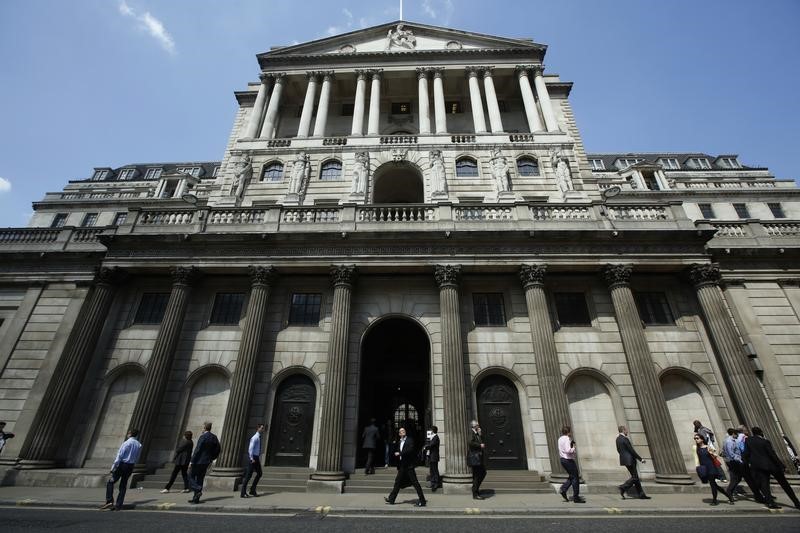By William Schomberg and Huw Jones
LONDON (Reuters) - The Bank of England took a tougher approach towards banks over their booming lending to consumers on Tuesday, ordering them to apply credit rules prudently and prove by September they are not being too complacent about risks to their balance sheets.
The BoE, which has powers to force firms to curb their lending, said last week it had spotted weaknesses in the way companies have been ramping up their offers of credit to consumers who are the main driver of Britain's economy.
Consumer borrowing is growing at more than 10 percent a year, while the household savings rate has hit an all-time low, raising concerns that some Britons are overstretching themselves and could struggle to make repayments if interest rates rise.
The BoE's Prudential (LON:PRU) Regulation Authority (PRA) did not set out any new rules on Tuesday, but its move was the first time it has ordered firms to apply consumer credit rules more conservatively and think harder about their lending assumptions.
It is also making company boards directly responsible for acting on its recommendations.
The BoE has previously announced measures to tighten standards in mortgage lending.
The PRA requested evidence from providers of consumer credit, such as credit cards and personal loans, of how they will ensure they are not taking too much risk after years of low interest rates.
Some interest rate-setters at the BoE want to raise borrowing costs to control Britain's fast-rising inflation rate, suggesting a first rate hike in a decade might be approaching more quickly than had been expected until recently.
Lenders will have until September to respond to the PRA and could then be asked to fix any specific areas of weakness.
As well as any follow-up action by the PRA, the BoE could introduce sector-wide measures.
Separately on Tuesday, the Financial Conduct Authority (FCA), Britain's lead regulator for smaller consumer credit providers, proposed a new rule to stop incentives from encouraging staff at lending firms to loosen standards for granting credit.
"We expect firms to understand the effects their staff incentives might be having," said Jonathan Davidson, executive director of supervision at the FCA.
CREDIT CARD, MOTOR LENDING
The PRA said it did not believe that growth in lending had been driven primarily by significantly lowering credit rules or scoring. But the growth plans of lenders might only be achievable with some loosening of underwriting standards.
Lenders seemed to be assuming Britain's economy will remain healthy and low arrears rates will continue, it said.
The PRA cited credit card firms offering long-term zero percent offers and providers of motor finance that rely on generous assumptions about the future value of used vehicles.
Lenders will have to show how they are protecting themselves against risk, including in their credit-scoring, at a time when many borrowers have not been put to the test of higher rates.
Tuesday's statement is the third leg of the PRA's response to concerns about consumer credit. Last week, the BoE said banks would have to start building a supplementary buffer of capital to ensure they can absorb any losses from defaults in credit.

Also last week, the BoE brought forward to September from November the assessment of stressed losses in consumer credit lending in this year's annual "stress test" of top banks.